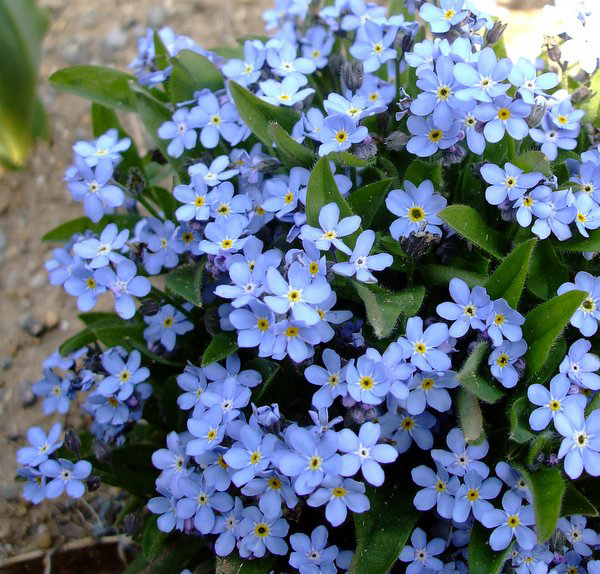
Wasurenagusa (Forget-me-nots) were in bloom in the garden of the house along the walking path. It is a romantic flower by its name. The name comes from the tragic love story about the Donau River in Germany, which is common all over the world. Another feature is that there are songs made from forget-me-nots all over the world. In Japan, the female chorus group Voce Angelica first released a single in 1963, but Yoichi Sugawara sang it in the 1971 NHK Kouhaku Uta Gassen and became a big hit. I still don’t know if the main character of this song is a woman or a man, but this may also be the reason for the big hit. “Forgetful Grass” composed by Ernesto de Curtis, the composer of “Torna a Surriento”, famous in Canzone, Italy, is sung by successive famous tenor singers. In addition, various singers in Japan sing various “Forget-me-nots”.
散歩道沿いのお家の庭先に勿忘草が咲いていました。名前からしてなんともロマンチックな花です。ドイツのドナウ川にまつわる悲恋物語に由来するその名前は世界中に共通します。また勿忘草を素材にした歌も世界中にあるのも特徴です。日本では、1963年に女性コーラス・グループのヴォーチェ・アンジェリカが最初にシングルをリリースしましたが、1971年のNHK紅白歌合戦で菅原洋一が歌って大ヒットしました。この歌の主人公は女性なのか男性なのか、未だに分かりませんが、これも大ヒットの理由かも知れません。イタリアのカンツォーネで有名な『帰れソレントへ』の作曲者であるエルネスト・デ・クルティスが作曲した『忘れな草』は歴代の名テノール歌手が歌っています。そのほか日本でも様々な歌手が様々な『勿忘草』を歌っています。
